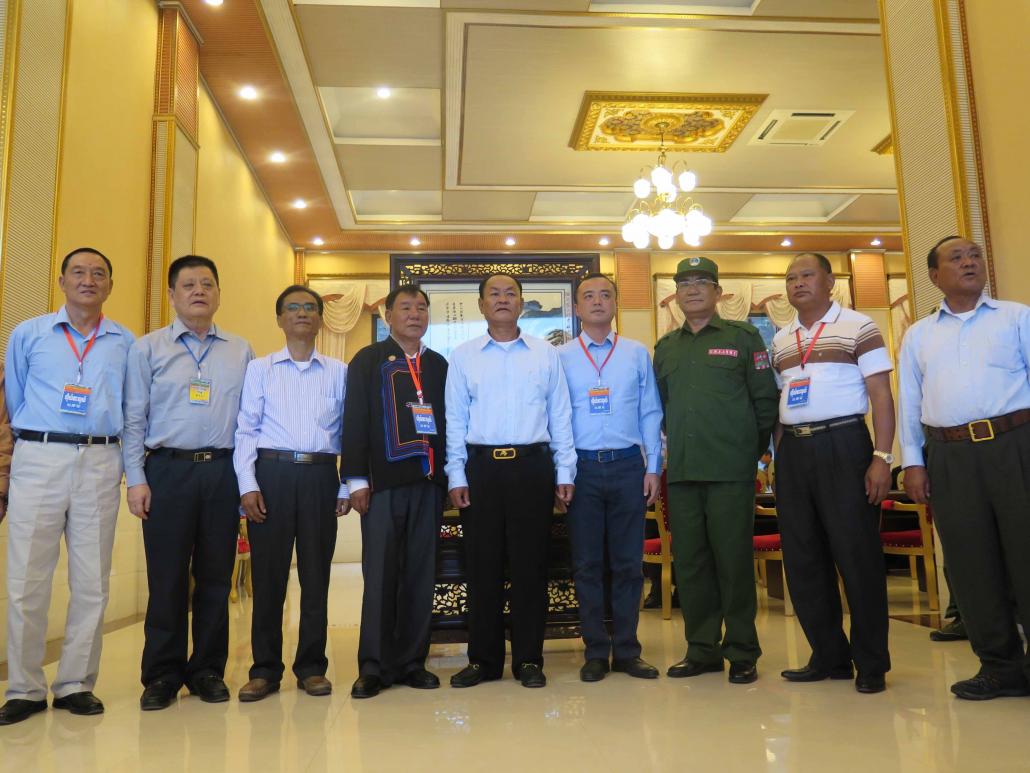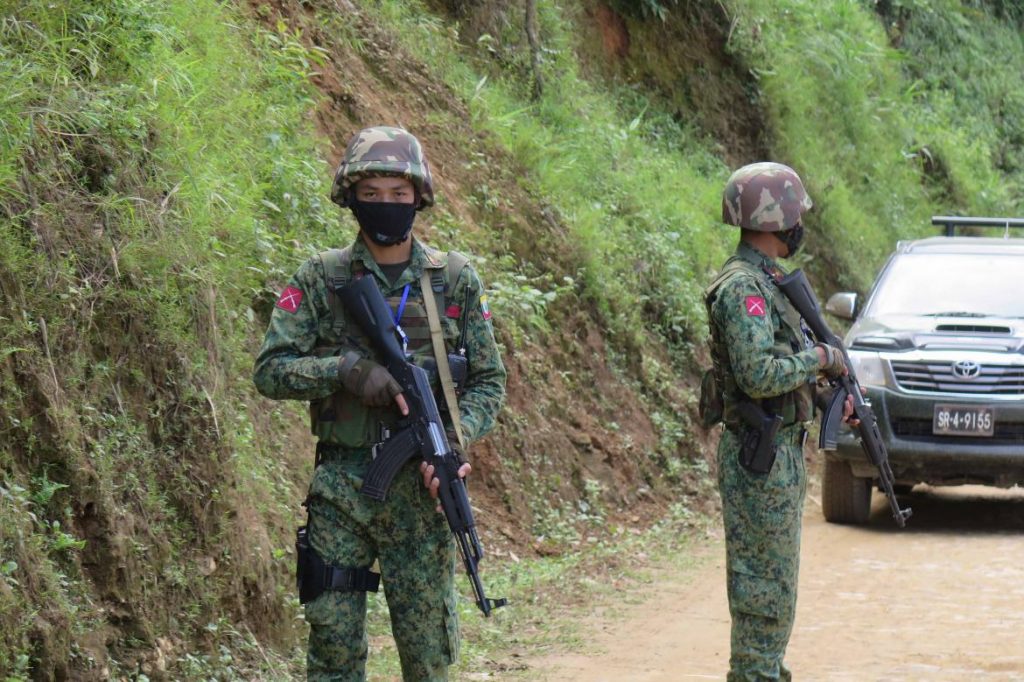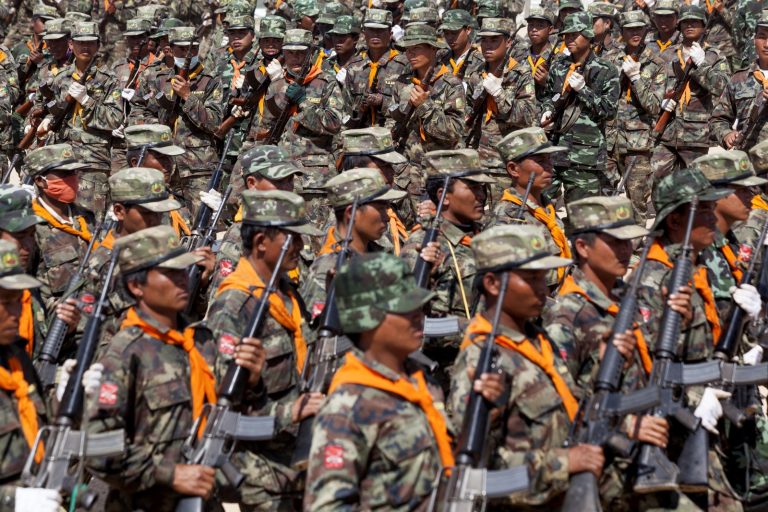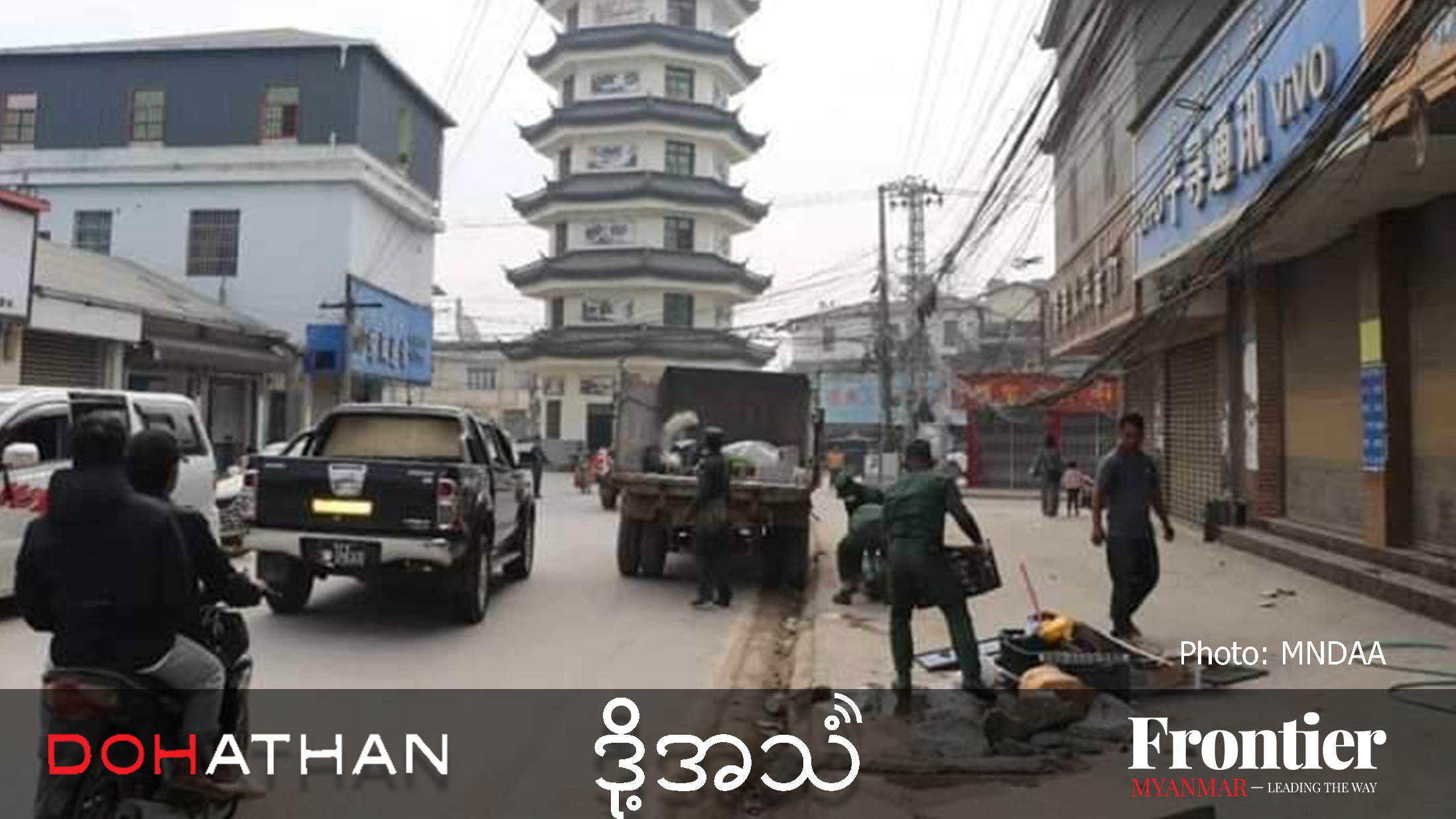The UWSA says it continues to enjoy good relations with the NDAA despite recent clashes and differences in approach to the government’s peace process.
By THI KHA | FRONTIER
THE United Wa State Army has claimed that relations are improving with the National Democratic Alliance Army despite the UWSA’s seizure of territory from its long-time ally during recent fighting in a remote border area in eastern Shan State.
Wa State TV reported without elaborating on October 7 that tensions were easing and said the UWSA would continue to build better relations with the NDAA, also known as the Mong La group.
Differences over the peace process are said to have prompted the move by the UWSA to seize two mountain outposts and a border checkpoint from the NDAA during a military training exercise that involved hundreds of troops as well as artillery.
The UWSA invited representatives from the NDAA and two other groups to which it has been allied, the Ta-ang National Liberation Army and the Myanmar National Democratic Alliance Army, to observe the exercises.
Support more independent journalism like this. Sign up to be a Frontier member.
A source close to the Wa, who was among the observers at the war games and did not want to be identified, said the military superiority of the UWSA meant that the Mong La group had to accept the loss of its territory.
The UWSA, the nation’s biggest armed ethnic group, has an estimated 20,000 to 25,000 troops, and the NDAA has more than 3,000 men under arms, according to the Myanmar Peace Monitor.
The source said relations between the two groups were strong, despite the incident.
“However, they had a big disagreement over the Nationwide Ceasefire Agreement, and the UWSA was not happy about the speech given by the Mong :a group at the Panglong 21st Century Union Peace Conference,” the source said.
The source said the NDAA had initially failed to recognise the political ramifications for relations with the UWSA when a leading member of the Mong La group, U Kyi Myint, called at the conference for all armed groups to sign the NCA.
The NDAA, UWSA, TNLA and MNDAA were not among the groups that signed the ceasefire agreement in October last year.
When Kyi Myint became aware that the call to sign the ceasefire had angered the UWSA he changed his tune, the source said. This explained why Kyi Myint had subsequently said the NDAA would “stay away” from the NCA, the source added.
The NDAA and the UWSA, which signed separate bilateral ceasefires with the junta in 1989, enjoy greater autonomy in areas under their control than other ethnic armed groups.
The UWSA is known to oppose signing the NCA, partly because it already has its own agreement with the military, and partly because it believes signing it would force them to disarm and link up with the Tatmadaw in some form. It is also opposed as long as the Tatmadaw continue operations against the Kachin Independence Army, another non-signatory of the ceasefire.
The source said some NDAA leaders, including Kyi Myint, misunderstood that the NCA would provide for other ethnic armed groups to enjoy similar autonomy.
img_0055.jpg

Senior officials from the United Wa State Army and National Democratic Alliance Army pose for a photo in Panghsang, including UWSA chief Bao Youxiang, centre, and NDAA leader Sai Leun, far left. (Thi Kha / Frontier)
The first serious disagreement between the two groups came over their respective delegations at the peace conference, to which the NDAA sent senior officials and the UWSA, a reluctant participant, was represented by low-ranking personnel from its liaison office at Kengtung.
A misunderstanding over accreditation resulted in the UWSA delegates walking out of the conference.
The series of events rattled the UWSA, the source said, and led to concern among its leadership that a decision by the NDAA to sign the NCA could result in the Tatmadaw taking control of some of its territory and using it to target the Wa for refusing to sign the ceasefire.
The UWSA’s decision to seize territory from the Mong La group was part of a pre-emptive strategy, the source said.
During its September 28 offensive, the UWSA was also reported to have captured about 150 NDAA fighters, who were all later released.
The NDAA said in a statement that the seizure of the mountain outposts and the border checkpoint could have been a misunderstanding.
“There was nothing wrong; we negotiated with their leaders and there’s no more tension,” Kyi Myint was quoted as saying in the statement issued on October 3.
Facebook posts described the situation in Mong La as stable and showed images that purported to be of UWSA and NDAA troops together at frontline mountain positions.
U Sai Mauk, the administrator of Mong La, said the NDAA was a small armed group that for the sake of defending its territory needed to have a strategic alliance with the UWSA. Both groups were former members of the Communist Party of Burma before it collapsed in 1989.
The ceasefires that the two groups signed with the junta in 1989 paved the way for development in the two regions and attracted investment from China.
The Wa capital, Panghsang, and its NDAA counterpart, Mong La, resemble modern Chinese cities. Both have casinos; Mong La is also a notorious centre for the trade in wild animals and their parts.
China has a major influence over the UWSA and the NDAA, many of whose leaders speak Chinese and Wa but not Myanmar.
As the peace process continues to make gradual progress, many analysts are wondering whether relations between the UWSA and NDAA will remain friendly or whether they will become enemies.
Top photo: National Democratic Alliance Army soldiers stand guard at the head of a convoy travelling from the NDAA headquarters at Mong La to the United Wa State Army capital of Panghsang. (Thi Kha / Frontier)







